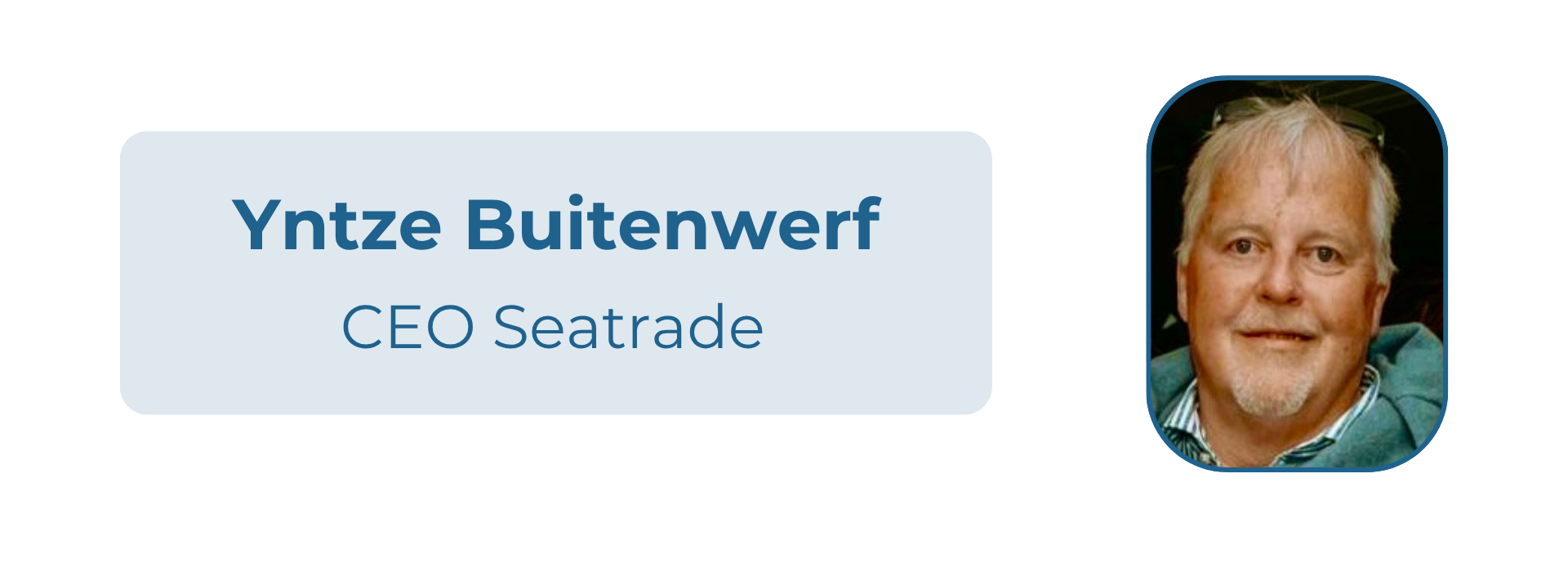Shipping People: Yntze Buitenwerf
In the 8th edition of the interview series #ShippingPeople – meet the European Shipowners, we hand the microphone to Yntze Buitenwerf, CEO of international shipping company Seatrade.

Considering Europe’s goal to meet climate neutrality by 2050, which are the main challenges for shipping? What innovative technologies or alternative fuels do you see as solutions to reduce emissions and achieve the climate targets?
The primary challenge in the maritime energy transition over the next 5 to 15 years is not technological, but rather the development and scaling of alternative fuel production and its supporting infrastructure. This is about building an entirely new fuel ecosystem. Fuel suppliers must step up to generate and respond to demand, while shipowners and cargo stakeholders face tough decisions around fuel choices. This creates the well-known chicken-and-egg dilemma.
Adding to the complexity is the fact that there is no one-size-fits-all solution: different ship types, trades, and routes require different fuels. At Seatrade, we lean towards Green Methanol, but collectively as a shipowner community we must remain open to various options, whether that’s ammonia, methanol, LNG, hydrogen, batteries, or even nuclear. It’s also worth noting that new insights may emerge along the way, disrupting current plans, but potentially offering better long-term solutions.
In light of the increasing digitalisation within the maritime sector, how do you anticipate these advancements will affect the role of seafarers onboard? What measures is your company taking to ensure that seafarers are equipped with the necessary skills and training to adapt to digitalisation?
First and foremost, digitalisation offers tools to make work easier for our seafarers. There is no strategy in our trade that would replace seafarers with computerized technologies. Jobs and required skillsets are likely to change, as they have always done. By implementing more sensoring technologies and automation processes on board, the job of a seafarer will be impacted positively with less adminstrative burden, physically less demanding work due to the monitoring role and continuous development of personal qualifications. It is additionally important to stress that these changes will take time and will not be successful if implemented only as a top-down policy. At Seatrade, we actively invest in onboard training focused on areas such as operational excellence, safety awareness, and cargo care. Equally important is our emphasis on intercompany training to strengthen the collaboration between ship and shore. We firmly believe that the human element in shipping is a key pillar in achieving the high level of service we strive for as a company. Empowering our people with the right mindset, tools, and knowledge is essential to delivering consistent, reliable performance at sea and on land.
The European shipping fleet is one of the largest in the world, enabling the EU to play a leading role in the global supply chains. How do you perceive the strategic role of shipping for European security?
Considering that 90 percent of everything is carried over sea, that offshore wind farms play an increasingly crucial role in Europe’s energy security, and that protecting our subsea infrastructure is pivotal, it is clear that Europe benefits significantly from its share in global shipping. However, we must remain vigilant and focused to ensure Europe does not lose grip on this vital sector, as our position cannot be taken for granted.
Take for example a company like Seatrade,a world-leading shipping company in the seaborn transport and logistics of perishable goods. In today’s unpredictable and unstable geopolitical environment, the ability to secure a steady flow of essential goods—including healthy nutrients and vitamins—becomes a matter of strategic importance. What would happen to European citizens could no longer be supplied through supermarkets with the fresh products we transport?
This role is not played by niche carriers alone. Part of this is also fulfilled by several large carriers that are instrumental in the worldwide transportation of consumer goods. Our collective presence and operational capacity are a cornerstone of Europe’s resilience and strategic autonomy. Safeguarding this logistical backbone must remain a priority.
For press and media enquiries, please contact:
Luisa Puccio, luisa.puccio@ecsa.eu, +32 492 733623

